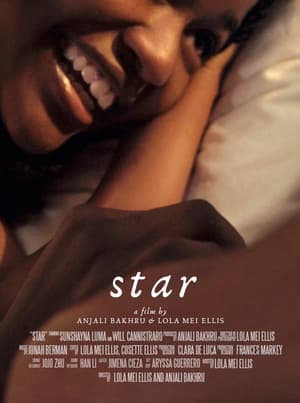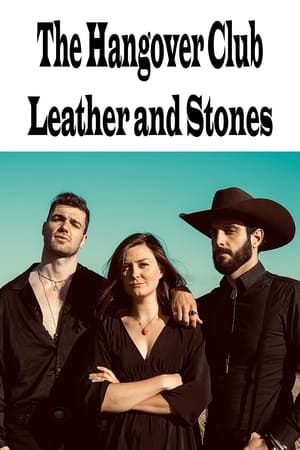

The Boy from the River Drina(2025)
Forced to flee Bosnia when he was a child, Irvin returns to his homeland. In the same woods where thirty years earlier people took refuge, he decides to build a small village with his own hands. To restore dignity to this place and to the people who died in the war, to heal his wounds, and to fulfill his desire for redemption. But when he is on the River Drina, Irvin does not stop trying to discover what happened, and what could still happen.

Movie: The Boy from the River Drina

Il ragazzo della Drina
HomePage
Overview
Forced to flee Bosnia when he was a child, Irvin returns to his homeland. In the same woods where thirty years earlier people took refuge, he decides to build a small village with his own hands. To restore dignity to this place and to the people who died in the war, to heal his wounds, and to fulfill his desire for redemption. But when he is on the River Drina, Irvin does not stop trying to discover what happened, and what could still happen.
Release Date
2025-01-25
Average
8
Rating:
4.0 startsTagline
Genres
Languages:
BosanskiItalianoKeywords
Recommendations Movies
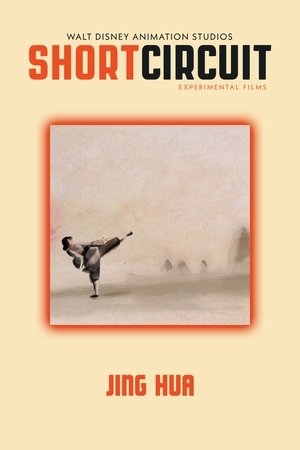 7.6
7.6Jing Hua(en)
A martial artist named Jing Hua stands in front of the grave of her deceased master. She exerts her frustration by performing kung fu; creating the world around her as it is made of water colors and ink. As her pain and sorrow at the loss of a loved one climaxes through the appearance of dripping ink, Jing Hua learns to accept the fate of her master as she becomes tired, but undefeated.
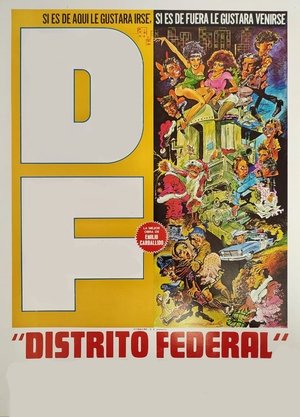 6.5
6.5D.F./Distrito Federal(es)
Anthology film, six little anecdotes about life in the big city.
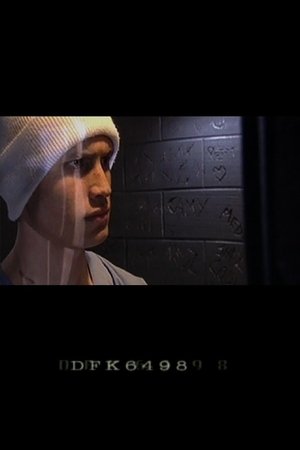 6.5
6.5DFK6498(en)
Cameron Duncan wrote, directed and starred in this short film, the same year a lump in his knee turned out to be cancerous. Aged only 16, Duncan had already showcased his filmmaking talents on a series of award-winning short pieces made for Fair Go's annual programme devoted to commercials. With DFK6498, he channels his recent experiences into a short, stylishly-shot memoir of incarceration, frustration and freedom lost. The film went on to win a trio of awards at Wanganui's River City Film Festival and win praise from director Peter Jackson.
Dschugaswili from Georgia(de)
Forced collectivism, famines, errors and mistakes mark Stalin´s ruthless rise to dictorial power and only increase his madness until he even declares a chicken to be an English spy that should be liquidated.
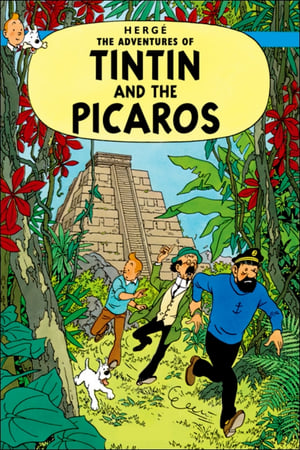 6.6
6.6Tintin and the Picaros(fr)
Tintin falls into a dangerous trap after his friends are falsely arrested in a troubled South American country where a revolution is about to explode.
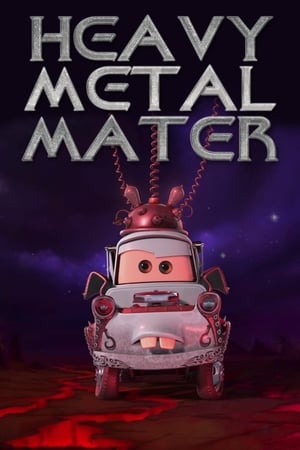 6.1
6.1Heavy Metal Mater(en)
Mater and Lightning McQueen are ready to rock! When Mater's garage band, Mater and the Gas Caps, records a hit song, Mater becomes a rock legend. Then Lightning joins Mater's band for the rock concert of the century!
Pretty Bloody: The Women of Horror(en)
Pretty Bloody: The Women of Horror is a television documentary film that premiered on the Canadian cable network Space on February 25, 2009. The hour-long documentary examines the experiences, motivations and impact of the increasing number of women engaged in horror fiction, with producers Donna Davies and Kimberlee McTaggart of Canada's Sorcery Films interviewing actresses, film directors, writers, critics and academics. The documentary was filmed in Toronto, Canada; and in Los Angeles, California and New York City, New York in the US.
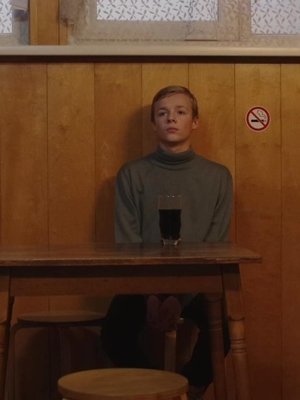 6.5
6.5MAN(lv)
A story about several hours, which significantly change the adolescent boy's life. In a small town in Latvia, there is an old Ferris wheel near a bar, in which the protagonist meets a female truck driver, and soon the wheel of fate of the adolescent boy is set in motion.
 6.4
6.4My Amnesia Girl(tl)
When Apollo finds himself surrounded by friends who are beginning to settle down, he is faced with the possibility of finding his true love. It all boils down to one name: Irene. It must be fate then, when he once again sees Irene, his ex-girlfriend from three years ago with whom he had the best memories with. Apollo and Irene were a perfect couple until circumstances led them to fall apart.Now, Irene has no recollection of Apollo, having acquired amnesia shortly after their separation. Apollo sees this as the perfect opportunity to pursue Irene again, and be able to undo all the mistakes he made in the past, by offering Irene the best memories she could ever have.True love is difficult to resist, they learn. Just when they find themselves ready to commit to each other, the pains from the past catch up with them, challenging them to finally own up to the mistakes made and lies said, and eventually realize what it is to forgive and forget.
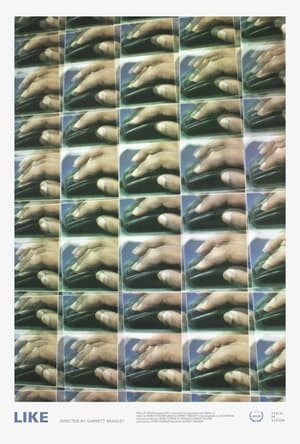 3.9
3.9Like(en)
In our current world, where worth is often gauged by online popularity, an economy has developed for paying for followers and likes. Through access inside the “click-farms” of Bangladesh, Like explores the multi-million dollar industry that grows social media followings for celebrities and brands alike.
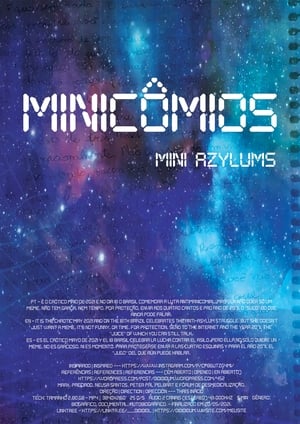 10.0
10.0minicômios(pt)
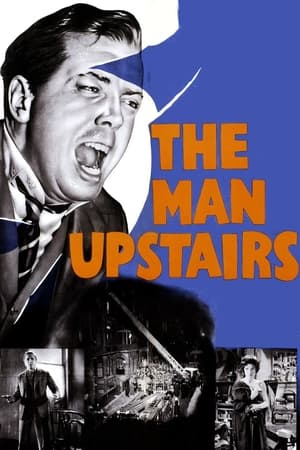 6.1
6.1The Man Upstairs(en)
The mental breakdown of a guilt-ridden man provides the drama in this fascinating psychological profile starring Richard Attenborough as a scientist who can't live with himself after he accidently kills the brother of his fiancee.
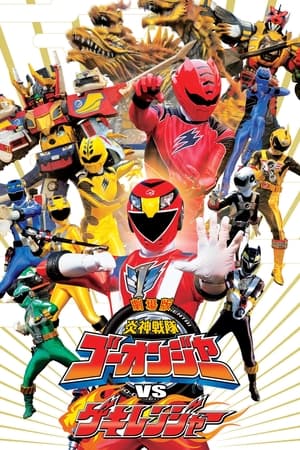 6.3
6.3Engine Sentai Go-Onger vs. Gekiranger(ja)
The story begins when Geki Red battles Nunchaku Banki after returning from his trip around the world for Natsume's birthday, with Geki Yellow and Geki Blue arriving to provide backup. After sending the Gekirangers into another dimension, the Go-ongers arrive before the Savage Machine Beast departs after his quarry. After clearing a misunderstanding with Geki Violet and Geki Chopper, the two bring them to SCRTC to see Master Xia Fu, with Hant revealing he met Miki at one of his past jobs at the Kyoryuya Curry Shop.
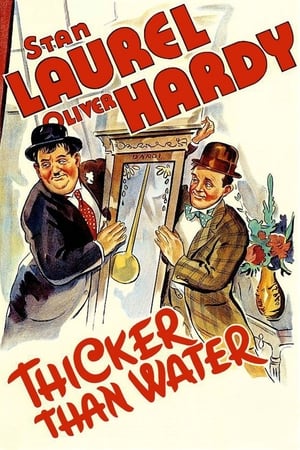 7.2
7.2Thicker Than Water(en)
Oliver's in trouble with his wife after missing a payment on their furniture, having given the money to Stanley, who used it instead to pay Mrs. Hardy for his room and board. At Stan's suggestion Ollie then withdraws the couple's savings from the bank to pay for the furniture and inadvertently pays virtually the whole amount at an auction for a grandfather clock which is soon crushed under a passing truck. Mrs Hardy then unintentionally causes serious injuries to Ollie requiring him to be rushed to hospital for a blood transfusion. The doctor conscripts Stan to be the unwilling blood donor. Problems occur with the transfusion and when Stan and Ollie leave the hospital they appear to have morphed into each other.
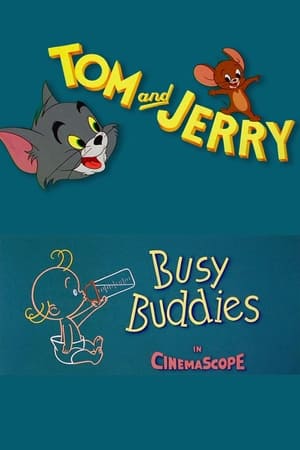 6.5
6.5Busy Buddies(en)
Tom and Jerry need to repeatedly come to the rescue when a teenage babysitter, supposed to be looking after the baby, is more interested in talking on the telephone than in paying attention to the baby who keeps crawling away.
 6.8
6.8R-Rated Idol Seung-ha's Sex Scandal(ko)
When they were young, Min-joo and Seo-yeon cared for each other and were closer than brothers and sisters. However, she accidentally learns about Seo-yeon's tutor, Woo-hyeon, and because of this man, their 10-year friendship starts to become shaky. Meanwhile, Jeong-soo is hurt in seeing Min-joo like that, and so he distanced himself from Min-joo. Because of Min-joo and Seo-yeon's misunderstanding, Jeong-soo who couldn't care much might just leave so Min-joo tries to break up with the help of Seo-yeon. While in the process of breaking up, Min-joo and Seo-yeon went back to their close relationship. The love of women who have been separated because of man, and the two men's friendship is comically drawn.
Similar Movies
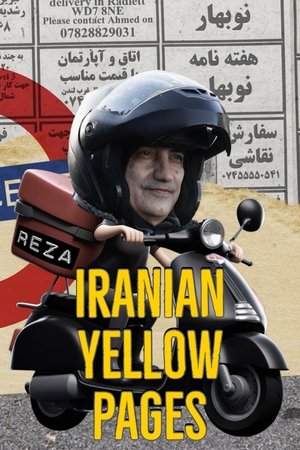 10.0
10.0Iranian Yellow Pages(en)
Striving to build a successful life in London, Reza places an ad in a peculiar newspaper and discovers the Iranian community hidden in plain sight. Winner of the Netflix Documentary Talent Fund.
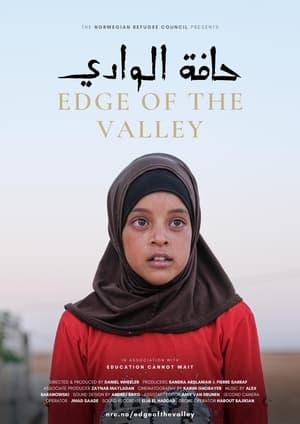 10.0
10.0Edge of the Valley(en)
A nine-year-old Syrian refugee girl contemplates her increasingly bleak future after being forced to drop out of school in the midst of Lebanon’s unprecedented economic collapse and battle with Covid-19.
 0.0
0.0Enkeltje Vrijheid(nl)
Before the eyes of the Sudanese Ahmed (25), the war broke out in full force. He decides to flee on foot to the Netherlands alone, to be able to live there in freedom. This documentary shows part of his arduous journey: from the Italian Alps to Ter Apel.
 0.0
0.0OLO, the Boy from Tibet(ja)
A 6-year-old Tibetan boy leaves his family and flees to a refugee camp in northern India.
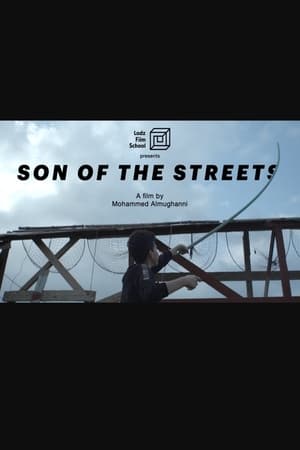 0.0
0.0Son of the Streets(ar)
13-year-old Khodor is a child whose family tries to issue him an ID document that proves his existence and gives him the right to education, health-care and movement outside of the Palestinian refugee camp of Shatila in Beirut, Lebanon. Through the process, many of the family's old secrets are revealed.
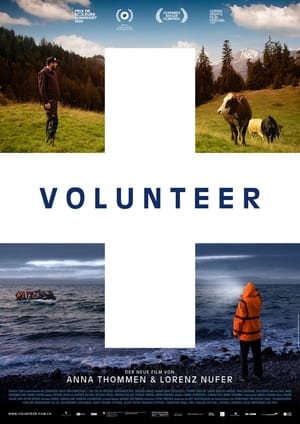 10.0
10.0Volunteer(de)
A film about the unprecedented Swiss grassroots movement of regular citizens who rise to aid thousands of refugees stranded at the European borders. In rich and safe Switzerland people from all backgrounds leave their regular life behind to support people in need. There is a Swiss farmer and his wife who keep cows in the Swiss Alps, a former commander of the Swiss Army, an elder rich lady residing at the lakeside, and a successful comedian and entertainer. These unexperienced volunteers take on an adventure that will change their lives forever.
 0.0
0.0Obaida(en)
OBAIDA, a short film by Matthew Cassel, explores a Palestinian child’s experience of Israeli military arrest. Each year, some 700 Palestinian children undergo military detention in a system where ill-treatment is widespread and institutionalized. For these young detainees, few rights are guaranteed, even on paper. After release, the experience of detention continues to shape and mark former child prisoners’ path forward.
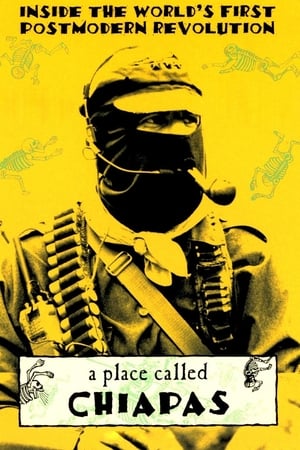 7.0
7.0A Place Called Chiapas(en)
In 1994, the Zapatista National Liberation Army, made up of impoverished Mayan Indians from the state of Chiapas, took over five towns and 500 ranches in southern Mexico. The government deployed its troops and at least 145 people died in the ensuing battle. Filmmaker Nettie Wild travelled to the country's jungle canyons to film the elusive and fragile life of this uprising.
 5.8
5.8The Last Season(en)
In search of the lucrative matsutake mushroom, two former soldiers discover the means to gradually heal their wounds of war. Roger, a self-described 'fall-down drunk' and sniper in Vietnam, and Kouy, a Cambodian refugee who fought the Khmer Rouge, bonded in the bustling tent-city known as Mushroom Camp, which pops up each autumn in the Oregon woods. Their friendship became an adoptive family; according to a Cambodian custom, if you lose your family like Kouy, you must rebuilt it anew. Now, however, this new family could be lost. Roger's health is declining and trauma flashbacks rack his mind; Kouy gently aids his family before the snow falls and the hunting season ends, signaling his time to leave.
 0.0
0.0Warehoused(en)
An estimated 12 million people live in refugee camps worldwide and only 0.1% are resettled, repatriated, or integrated into normal society each year. The feature-length documentary.
 8.0
8.0Once My Mother(en)
Australian filmmaker Sophia Turkiewicz investigates why her Polish mother abandoned her and uncovers the truth behind her mother's wartime escape from a Siberian gulag, leaving Sophia to confront her own capacity for forgiveness.
 0.0
0.0Testament (Заповіт)(uk)
As the war wages on, Ukrainians under everyday threat find ways to live. A soldier returns home, a chaplain grapples with the weight of responsibility, and a mother grieves the loss of her family. These stories, amidst others, are a testament of Ukraine’s history, perseverance and plea to be remembered.
 4.8
4.8Mr. Gay Syria(en)
In focusing his attention on the competitors of Mr Gay Syria, director Ayse Toprak shatters the one-dimensional meaning of “refugee”. Using the pageant as a means of escape from political persecution, the organiser Mahmoud — already given asylum in Berlin — hopes to offer the winner a chance to travel as well as bring international attention to the life-threatening situations faced by LGBT Syrians.
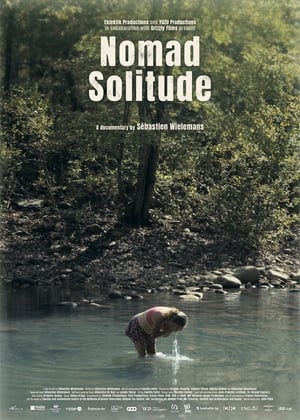 8.0
8.0Nomad Solitude(fr)
In their vehicle, Laurie, Kristy and Linda live alone on the American roads. Like thousands of modern American nomads who can no longer afford to pay for their housing. With no money to spare, these three sixty-year old women are fleeing, in their own way, a part of their history that has left a deep mark on them. Driving away, they try to regain some form of peace. But as the miles and seasons pass, despite their impressive temerity and resilience, their quest for a better future is challenged by unexpected events that hit a country in crisis. Will they nevertheless manage, at the end of the road, to find the serenity they are looking for, in order to become someone again?
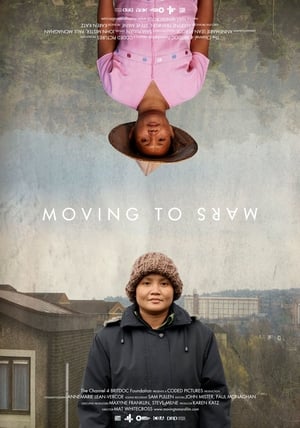 0.0
0.0Moving to Mars(en)
Moving to Mars charts the epic journey made by two Burmese families from a vast refugee camp on the Thai/Burma border to their new homes in the UK. At times hilarious, at times emotional, their travels provide a fascinating and unique insight not only into the effects of migration, but also into one of the most important current political crises - Burma.
 6.0
6.0Flugtkongen(da)
 6.8
6.8Human Flow(en)
More than 65 million people around the world have been forced from their homes to escape famine, climate change and war, the greatest displacement since World War II. Filmmaker Ai Weiwei examines the staggering scale of the refugee crisis and its profoundly personal human impact. Over the course of one year in 23 countries, Weiwei follows a chain of urgent human stories that stretch across the globe, including Afghanistan, France, Greece, Germany and Iraq.
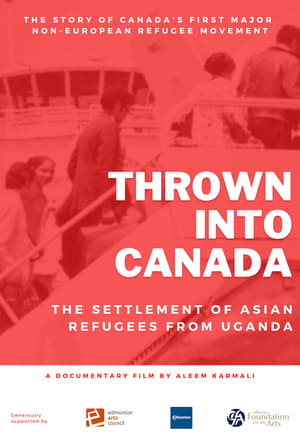 0.0
0.0Thrown into Canada(en)
This documentary explores the history of Canada’s first major migration of non-European and non-white refugees who arrived in 1972 when Ugandan President Idi Amin expelled all South Asians from the country. Their story of struggle and hope became part of Canada’s conversations about refugees and cultural pluralism, and informed the Canadian response to future refugee movements.
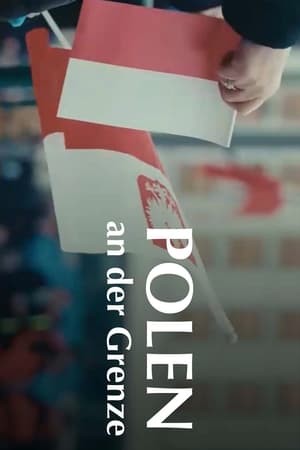 0.0
0.0Poland: A Nation under Stress(de)
In the run-up to parliamentary elections in mid-October, Polish filmmaker Marcin Wierzchowski travelled across his country to gauge the atmosphere in a society that is more divided than ever.
